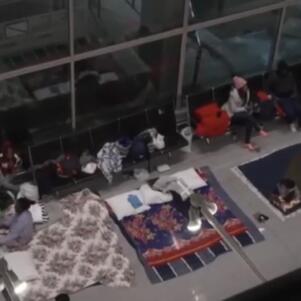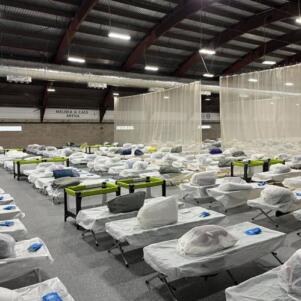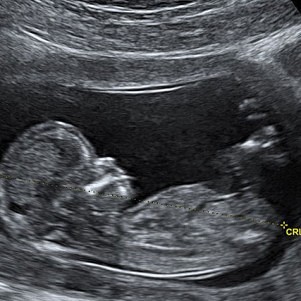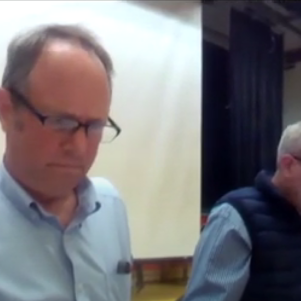The Democracy Hong Kong Wants, Taiwan Already Has
By Don Feder | August 15, 2019, 13:38 EDT
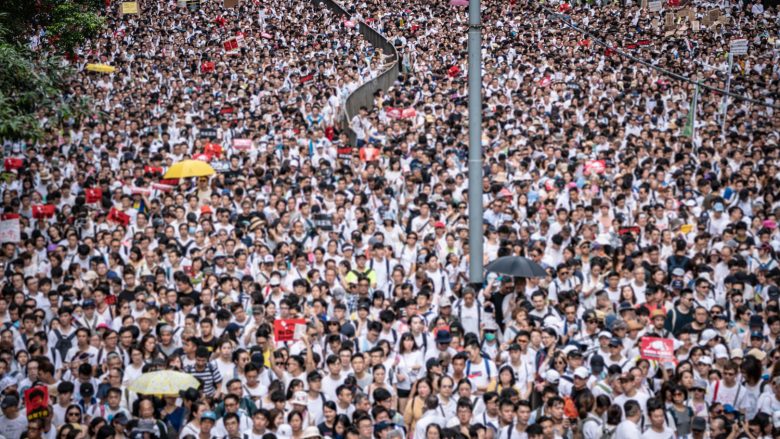 Protests in Hong Kong on June 9, 2019. Photo by Hf9631, courtesy of Wikipedia.
Protests in Hong Kong on June 9, 2019. Photo by Hf9631, courtesy of Wikipedia. To call the situation in Hong Kong tense is akin to calling the Democratic Party’s internal politics chaotic. Pro-democracy demonstrations are now in their fifth month and show no sign of letting up.
Demonstrators shut down the city’s international airport (one of the busiest in the world) two days in a row last week. Beijing is furious over the inability of its puppet regime to restore order by traditional methods.
There are 6,000 troops stationed in the former British colony which could be called on to provide support to local police. On August 6, 12,000 para-military forces — along with helicopters, tanks, and amphibious vehicles — gathered in Shenzhen, a Chinese city bordering Hong Kong, for what was billed as anti-riot drills.
How far is the People’s Republic willing to go to eliminate Hong Kong’s democracy movement? For the time being, probably not as far as Tiananmen Square, when tanks rolled over protestors in 1989. But at that time, most Sinologists told us violent suppression of dissent could never happen in modern China – just before violent suppression of dissent happened.
When control of the city was transferred from the United Kingdom to the People’s Republic of China in 1997, China solemnly promised “one country, two systems” — that the city would continue to enjoy the civil-liberties protections and rudimentary democracy it had under the British. That faded as fast as a mirage in the desert.
The current protests were sparked by a move by the Hong Kong government to pass a law allowing political prisoners to be transferred to the People’s Republic of China proper for trial. In other words: trial by communism. (Interesting historical note: This was a factor that contributed to our American Revolution. The Declaration of Independence charged King George with “transporting us beyond seas to be tried for pretended offenses.”)
One country/two systems is based on the dubious assumption that a totalitarian regime can be trusted to keep its word. Las Vegas bookkeepers would have a hard time calculating the odds on that.
It’s also the deal Chinese President-for-life Xi Jinping periodically offers Taiwan. (“Come into my parlor,” says the spider, “and you can maintain your autonomy.”) Just look at how well it’s working in Hong Kong.
China fears Taiwan’s democracy even more than it fears its sovereignty.
The People’s Republic loathes the idea of a thriving Chinese democracy, especially one so close to its shores. For years, the experts told us that democracy was alien to the Chinese character, a racist notion that Taiwan has amply disproven.
In its publication Freedom in the World 2019, the non-partisan Freedom House had this to say about Taiwan (also known as the Republic of China): “Taiwan’s vibrant and competitive democratic system has allowed three peaceful transfers of power between rival political parties (the Democratic Progressive Party and KMT) since 2000, and protections for civil liberties are generally robust.”
Until 1989, Taiwan was a one-party state, with serious restrictions on the right to protest and rigid censorship. Since then, it has become a multi-party system with an independent judiciary and free press.
While the Democratic Progressive Party and Kuomintang (KMT) are the main parties (and have held the presidency twice each since 2000), the People First Party, New Power Party, and Non-Partisan Solidarity Union are all represented in the unicameral Legislative Yuan. In local elections in 2018, there were thousands of contests for municipal and county offices. The mayor of Taipei City is the leader of the Taiwan People’s Party.
Taiwan has had direct elections for president since 1996. In 2016, the Democratic Progressive Party’s Tsai Ing-wen made history when she became the first woman elected president of Taiwan.
Whatever the illusions of the Chinese Politburo, Taiwan is not part of Mainland China. Except for a few years from the end of World War II to the conclusion of China’s civil war, Taiwan has not been under mainland Chinese control for the past 122 years. It has never been ruled by the People’s Republic.
In the past 70 years, the Taiwanese have developed their own national identity and institutions light-years away from Mainland China’s totalitarian state.
While Communist Xi’s ambitions don’t end with Taiwan, the nation of 23.5 million is a major obstacle to mainland Chinese expansion. With Taiwan, the People’s Republic of China would control both sides of the Taiwan Strait and have strategic air and naval bases to project its power south, possibly all the way to Australia.
The Trump administration recognized this with its $2.2-billion arms sale (including Stinger missiles and Abrams tanks) to Taiwan earlier this year. At the time of the sale, the Defense Security Cooperation Agency called Taiwan “an important force for political stability, military balance and economic progress in the region.”
More than that, Taiwan is a beacon of hope for the struggling masses of Asia, especially the besieged citizens of Hong Kong. Demonstrators there want what the Taiwanese already have.
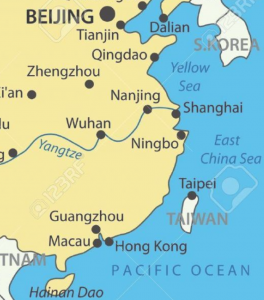
Don Feder, a former columnist for The Boston Herald, is a media consultant and freelance writer. He is also Director of Coalitions of the Ruth Institute.

